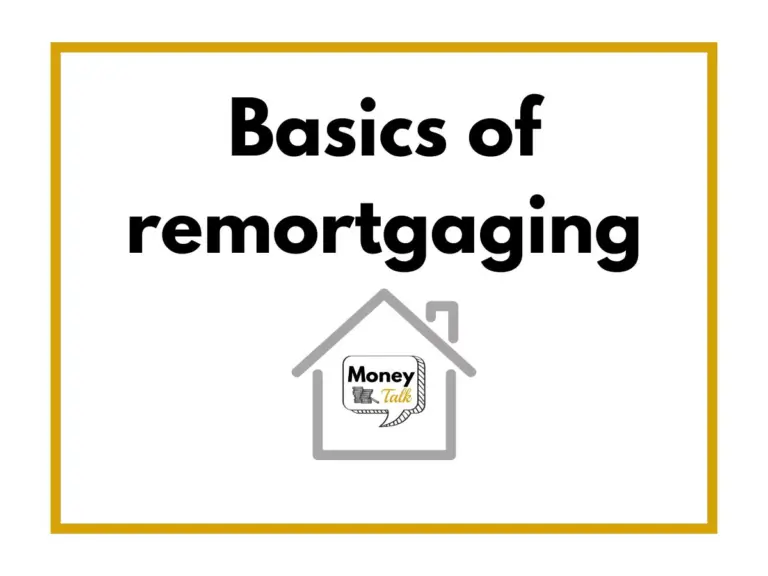Why your mortgage application got rejected
Money Talk is intended to inform and educate; it's not financial advice. Affiliate links, including from Amazon, are used to help fund the site. If you make a purchase via a link marked with an *, Money Talk might receive a commission at no cost to you. Find out more here.
Securing a mortgage can be a nightmare when you have a low deposit or poor credit history.
But even when you think you have all the pieces in place, you may still get rejected.
This week, Paul Coss, a specialist mortgage broker and co-founder of Haysto, has lifted the lid on some of the lifestyle choices that can raise red flags for lenders.
Withdrawing cash with your credit card
Being able to withdraw cash with your credit card can be handy in a pinch.
And, as long as you don’t miss the minimum payments every month, it won’t affect your credit score – although of course, you should be aiming to pay off the balance in full.
But withdrawing cash with your credit card on the regular and it will raise a red flag for lenders.
Paul explained: “Withdrawing cash using your credit card can suggest to lenders that you don’t have enough money in your personal account to withdraw the amount needed. This in turn could affect the decision being made on your mortgage.”
Using payday loans
Unlike other forms of borrowing, which can help you build a positive credit history, using payday loans can actually work against you.
“Many lenders will see the use of a payday loan – even if you paid it on time – as a red flag that you had financial problems,” according to Paul. “And if it’s recent, they’re most likely going to reject your application.”
But you may still be able to get a mortgage – it’s all about finding the right fit.
Paul said: “There are some specialist lenders that would be happy to consider someone who has used a payday loan recently or in the last 12 months and would look at this on a case by case basis.”
Using Buy Now Pay Later schemes
Paul advises avoiding Buy Now Pay Later (BNPL) schemes until a mortgage application has been accepted.
While good for spreading the cost of a big ticket item, these forms of borrowing have been known to lead people into debt.
Lenders are naturally cautious about this form of debt, but it’s not the only reason.
Paul explained: “When applying for a mortgage, lenders take into account all credit commitments and activity, so any additional finance options that show you owe money to external lenders can put you at a disadvantage.”
Jokey payment references
When setting up a payment from your bank account, you’re usually asked for some sort of payment reference or nickname that helps you to keep track of payments.
Paul advises keeping this “clean and informative so that there isn’t any confusion or cause for concern”.
He explained: “Although you may think writing a rude caption as your payment reference when sending money to your mates is an innocent joke, it could cause issues later down the line.
“Lenders comb through potentially up to six months’ worth of bank statements when you apply, so anything that could make you look irresponsible could damage your chances.”
Other red flags for lenders
Lack of credit history
If you’ve never borrowed money, this can work against you.
Paul said: “By having no history of credit, lenders will see you as a greater risk as they have no prior information about your ability to borrow money or whether you are reliable with repayments.”
Read more: How to build your credit score without a credit card (or borrowing)
Poor credit history
If you are borrowing and are regularly falling behind with payments, defaulting on them, or have a CCJ (County Court Judgement) against you, lenders will be less likely to be willing to lend to you.
Using up too much of your available credit
Your risk profile also increases if you are spending a high proportion of your available credit – if you’re maxing out your credit card every month for example, even if you manage to pay it back in full.
Having a baby
Different lenders have different outlooks on prospective and new parents.
“Emphasis will be placed on the income to be received during maternity leave, potential childcare costs, the terms upon which you will be returning to work and so on,” Paul said. “Every lender does it differently.”
Self-employment
“Getting a mortgage when self-employed can be more complex due to the unpredictability of monthly income, with many lenders wanting to see up to three years’ worth of accounts before they consider you for a mortgage,” according to Paul.
The best way to get over this hurdle is to talk to a broker that specialises in self-employment mortgages – they may be able to help find you suitable lenders and products.
Read more: Self employed mortgage guide: Tips from the experts
A gambling habit
Needless to say, if you’re an active gambler, it can affect your application.
Paul said: “Lenders don’t necessarily care what you spend your money on. Their primary concerns are to see if you can manage your finances and whether or not you’re getting into debt to fund your gambling.”
Pin this for later







